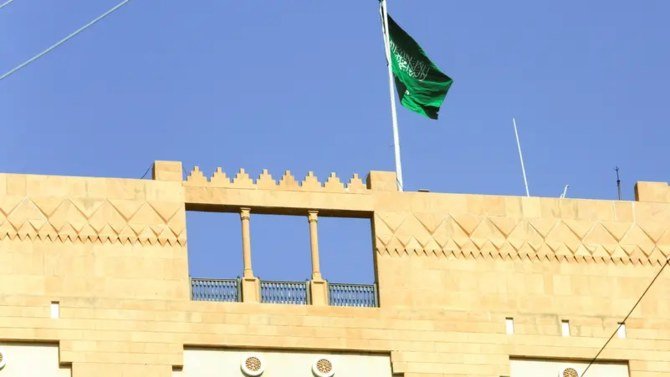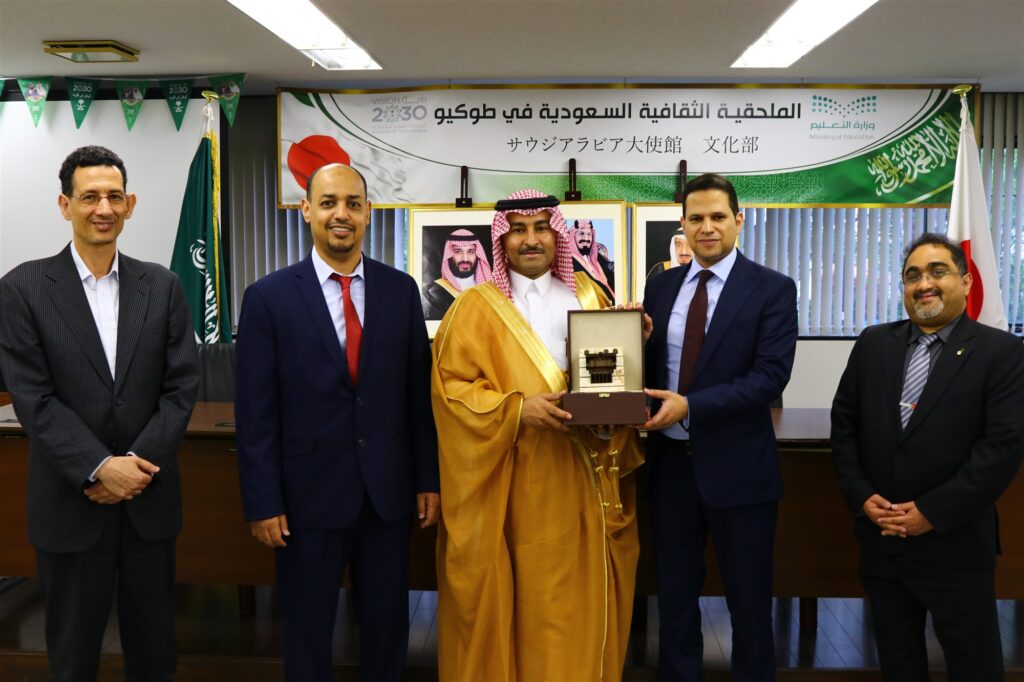Najia Houssari
BEIRUT: Saudi Arabia is seeking the arrest and extradition from Lebanon of a Saudi man who threatened the Kingdom’s embassy in Beirut, the Saudi ambassador to Lebanon said on Tuesday.
“We call upon the competent Lebanese authorities to undertake the necessary legal procedures regarding the terrorist threats,” Waleed Bukhari said after a meeting with Lebanon’s interior minister.
Lebanese security forces last week raided Saudi national Ali bin Hashem bin Salman Al-Hajji’s home in Nabatieh, southern Lebanon. Al-Hajji had posted an online audio recording in which he threatened to “annihilate everyone inside” the Saudi embassy in Beirut, and declared his support for Hezbollah.
Al-Hajji had been convicted of terrorism crimes in the Kingdom in 2017. He is thought to have fled the Kingdom before sentencing and traveled to Iraq and Syria before settling in Beirut’s southern suburbs. He now claims to be in Syria.
Bukhari on Tuesday called on Lebanese authorities to find him and hand him over. “We have submitted an official diplomatic note to the Ministry of Foreign Affairs in this regard,” he said.
The envoy also urged Lebanese security forces to continue cracking down on illicit drug smuggling to Saudi Arabia, and said the Kingdom had seized 700 million narcotic pills and hundreds of kilos of hashish smuggled from or through Lebanon since 2015.
Saudi Arabia suspended fruit and vegetable imports from Lebanon in April last year, accusing it of inaction after the Kingdom seized millions of Captagon amphetamine pills smuggled in fruit shipments. The drug is produced mainly in Syria, as well as in Lebanon, and smuggled to the Gulf.
Trade in captagon in the Middle East passed $5 billion in 2021, posing an increasing health and security risk to the region, according to a report this year by the New Lines Institute.
Bukhari said Saudi Arabia had seen improvements in counter-drug smuggling operations in Lebanon, and called on Lebanese authorities to “further strengthen the joint cooperation mechanisms in the areas of combating drug and psychotropic substances trafficking as well as the organized crimes related to it.”





















